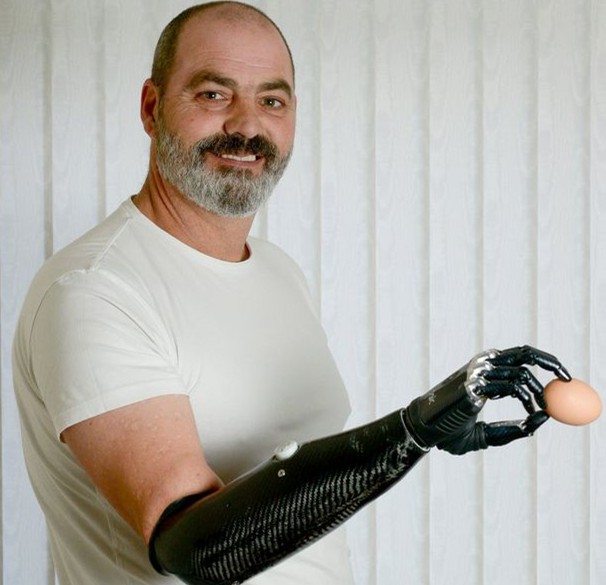
Phil and I read far more broadly than we can travel, so when Rohit Talwar of Fast Future was kind enough to arrange a complimentary registration to the Global Futures 2045 conference in New York City earlier this month, we tapped Paul Orselli, President and Chief Instigator at POW! (Paul Orselli Workshop) to attend on our behalf. Little did we realize we were sending Paul into a convening of transhumanists (who believe we are on the cusp of discovering how to upload human consciousness into machines.) I’ve written that scanning should encompass fringe as well as mainstream sources. Consider this your monthly dose of news from the fringe.
When the fine folks from AAM’s Center for the Future of Museums (CFM) asked me to attend a “futurism” conference at Lincoln Center in New York City, I jumped at the chance.
I imagined discussions and demonstrations regarding robots, space, nanotechnology, biotechnology, and the like. I expected that an international conference entitled GF2045 (Global Future 2045) would stretch my mind in unexpected ways.
Which it did. But little did I realize that the primary focus of this conference would be, in a word, immortality. Immortality as in living forever. Immortality as in downloading the complete contents of your brain, your human essence, into some sort of machine.
I looked at the back of my fancy plastic nametag that I received upon check-in to discover what I would characterize as the GF2045 “manifesto” from the Conference’s founder, Dmitry Itskov:
“Cyborgs or AI would not cause a civilization catastrophe. Homo Sapiens’ primitive, selfish, short-sighted thinking however could. If we are willing and able to change that mindset and change the world, then why would we have to die in this new world? Why would we not have the right to choose? Why would immortality not be part of a positive scenario for human development?”
And now I’ll admit that I started to get intensely uncomfortable. (I’ll also mention parenthetically that I had just gotten off a red-eye flight from Albuquerque a few hours before at JFK and came directly to Manhattan, so I was feeling a bit fuzzy.) Was this really the conference I had committed to attending for two full days!?!?
I took a deep breath and started scanning the Conference program for reassurance. Here were some of the session titles that immediately jumped out at me: “Intelligent Self-directed Evolution Guides Mankind’s Metamorphosis Into An Immortal Planetary Meta-Intelligence” (had to read and parse that one several times!) “The Goal of Biotechnology is the End of Death“; “Whole Brain Emulation: Reverse Engineering A Mind” and “How Human Consciousness Could Be Uploaded Via Quantum Teleportation.”
Clearly, even as a science person, I was in over my head. WAY over my head. But what could I do? I had made a commitment to the CFM team, and really isn’t the point of a Futurism Conference to push us out of our comfort zone, and make us think beyond mere incremental steps and predictions about what lies ahead?
With another deep breath, I grabbed a seat near the rear of the Alice Tully Hall auditorium inside Lincoln Center and told myself that I would resist judging the content being presented and just experience the ideas of the conference as they happened and try to take notes to be able to mentally unpack and collate my thoughts.
So allow me to unpack my “mental laundry” a bit and share my impressions of the future as viewed through a decidedly GF2045 lens:
There are clearly many completely sincere people from a variety of spheres: science, spirituality, engineering, and business who firmly believe in the importance and efficacy of pursuing the goal of human immortality.
Personally, I still find the notion of immortality (even in the digital brain download sense) baffling. I love life, but I do not want to live forever. Nothing I heard at the GF2045 Conference has changed my personal ideas about that. It often felt like answers in search of questions.
 |
| Nigel Ackland & his Bionic Arm |
However, having the opportunity to see Dr. Hiroshi Ishiguro’s robotic “avatars” or to hear the gratifying story of Nigel Ackland who lost his arm in an accident, and then to see his amazingly cool prosthetic arm controlled by his brain gave me enormous hope for the future and the continuing intersections of human ingenuity and technology.
So perhaps, in the end, immortality is in the eye of the beholder. Perhaps a different measure of immortality is not an individual life lived forever, but rather a collective human spirit that leads into the future, pushed forward by interesting ideas and discoveries contributed from all of us.
You can read an extensive review of the conference with a list of speakers in Digital Trends, and hear Dimitri Itskov on the subject of immortality for yourself in this video.








